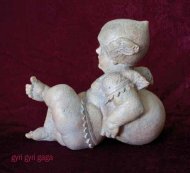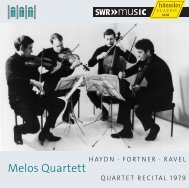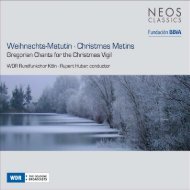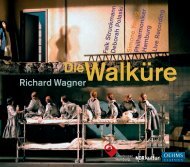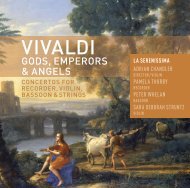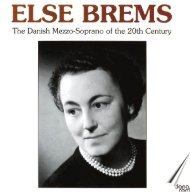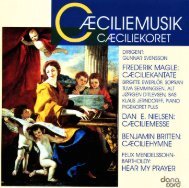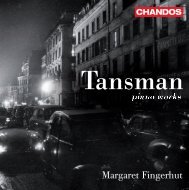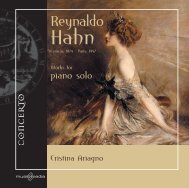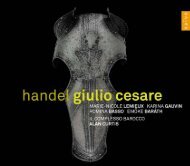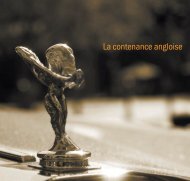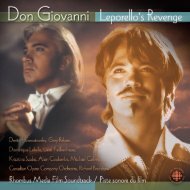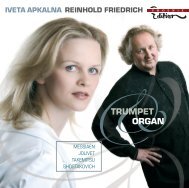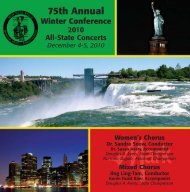J O H A N N S E B A S T I A N B A C H - Naxos Music Library
J O H A N N S E B A S T I A N B A C H - Naxos Music Library
J O H A N N S E B A S T I A N B A C H - Naxos Music Library
You also want an ePaper? Increase the reach of your titles
YUMPU automatically turns print PDFs into web optimized ePapers that Google loves.
2. Recitative<br />
In prayer we now thy temple face,<br />
Where God’s own honor dwelleth,<br />
Where his good faith,<br />
Each day renewed,<br />
The purest bliss dispenseth.<br />
We praise him for what he for us hath done.<br />
Although our feeble voice before his wonders<br />
stammers,<br />
Perhaps e’en modest praise to him will yet<br />
bring pleasure.<br />
3. Aria<br />
Highest, make thy gracious goodness<br />
Henceforth ev’ry morning new.<br />
Thus before thy father’s love<br />
Should as well the grateful spirit<br />
Through a righteous life show plainly<br />
That we are thy children truly.<br />
4. Chorale<br />
Now laud and praise with honor<br />
God Father, Son, and Holy Ghost!<br />
May he in us make increase<br />
What he us with grace hath pledged,<br />
So that we firmly trust him,<br />
Entirely turn to him,<br />
Make him our true foundation,<br />
That our heart, mind and will<br />
Steadfast to him be cleaving;<br />
To this we sing here now;<br />
Amen, we shall achieve it,<br />
This is our heart’s firm faith!<br />
5. (Finale)<br />
Alleluja!<br />
Praise ye God in ev’ry nation BWV 51<br />
Composed: probably for 17 September 1730<br />
Performed on: 15th Sunday after Trinity and<br />
any occasion<br />
Text: Unknown author. Movement 4: verse 5<br />
(substitute verse Königsberg 1549) of the<br />
chorale Nun lob mein Seel den Herren by<br />
Johann Gramann (1530)<br />
Complete editions: BG 122: 3 – NBA I/22: 79<br />
In our introduction to BWV 49 we talked of the<br />
“sinfonia” concerto movement Bach sometimes<br />
used as an overture to his cantatas. But in<br />
Bach’s mind the concerto form didn’t<br />
necessarily have to be instrumental. And he<br />
29<br />
proved this in the opening movement of this<br />
soprano solo cantata. It could be defined as a<br />
“triple concerto” – for an unusual cast of<br />
soprano, trumpet, violin and orchestra.<br />
However, Bach did not continue this play with<br />
forms: He let the second movement of the<br />
cantata, a recitative with string<br />
accompaniment, fade into an arioso, a kind of<br />
sensitive, opera-like monody. The following<br />
aria only needs the continuo for support, which<br />
keeps on repeating its theme in an ostinatolike<br />
manner. This is followed by a chorale<br />
arrangement for two concertante violins and<br />
the singing voice performing the cantus firmus.<br />
The cantata ends with a virtuoso fugato for<br />
soprano and trumpet with a final joyous<br />
Alleluia.<br />
Bach probably expected famous trumpeter<br />
Johann Gottfried Reiche to take part in the<br />
performance and he must have had a<br />
particularly talented boy soprano at St.<br />
Thomas. However, it is difficult to tell when the<br />
cantata was composed, because the 15th<br />
Sunday after Trinity in 1725, the earliest<br />
possible date of performance – in 1723 Bach<br />
performed BWV 138, in 1724 BWV 99 –, fell<br />
on St. Michael’s, and that’s when he<br />
demonstrably performed cantata BWV 19 Es<br />
erhub sich ein Streit. Even in the following<br />
years he performed other works, so that 1730<br />
is the earliest possible year of composition.<br />
However, the cantata text has very little to do<br />
with the Gospel readings of the day. Perhaps<br />
that’s why Bach wrote “et in ogni Tempo” on<br />
the score cover. This allowed the virtuoso<br />
“cantata” of praise for God, featuring a cast<br />
rare for Bach but not unusual for his Italian<br />
contemporaries, to outstep the bounds of its<br />
occasion in the ecclesiastical year and become<br />
one of Bach’s most well-known and popular<br />
cantatas.<br />
I will the cross-staff gladly carry BWV 56<br />
1. Aria<br />
I will the cross-staff gladly carry,<br />
It comes from God’s beloved hand,<br />
It leadeth me so weak and weary<br />
To God, into the promised land.<br />
When I in the grave all my trouble once lay,<br />
Himself shall my Savior my tears wipe away.<br />
2. Recitative<br />
My sojourn in the world<br />
Is like a voyage at sea:



